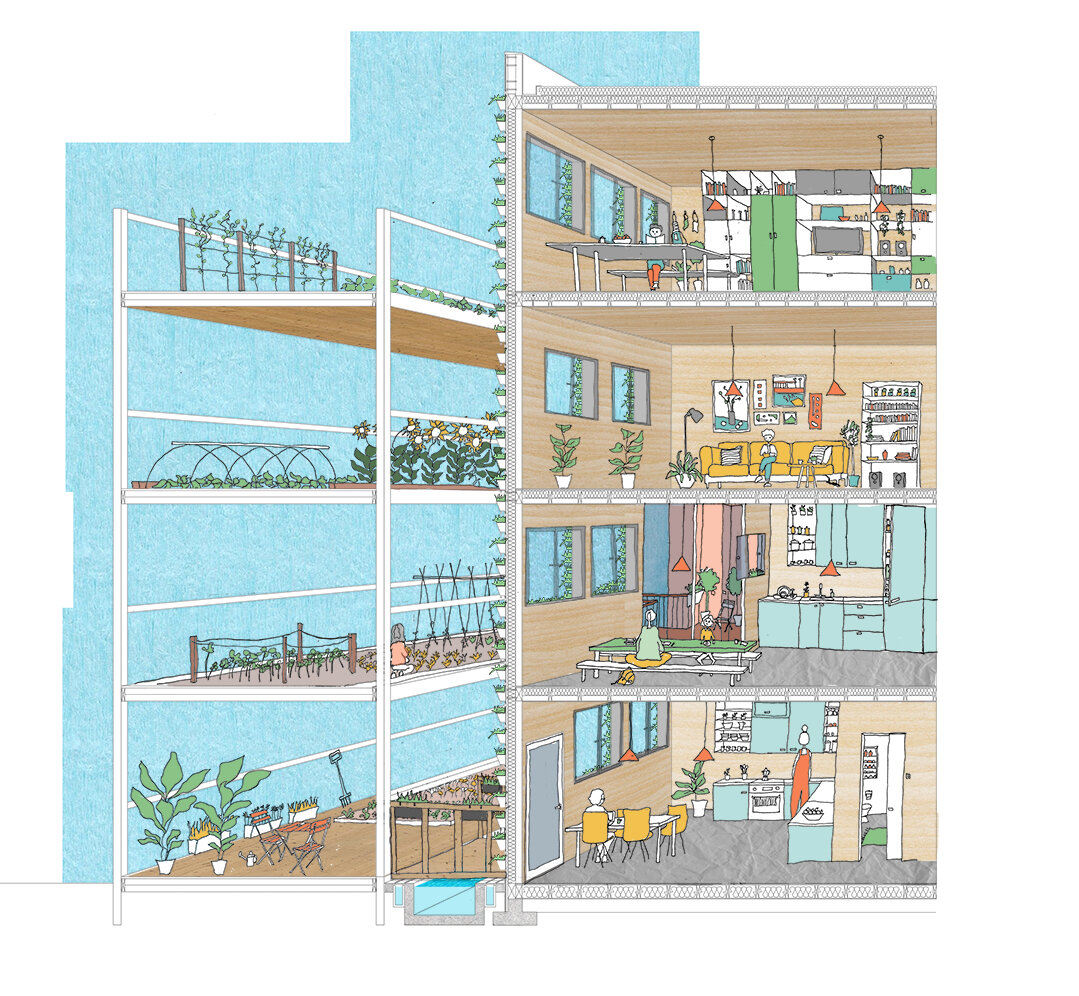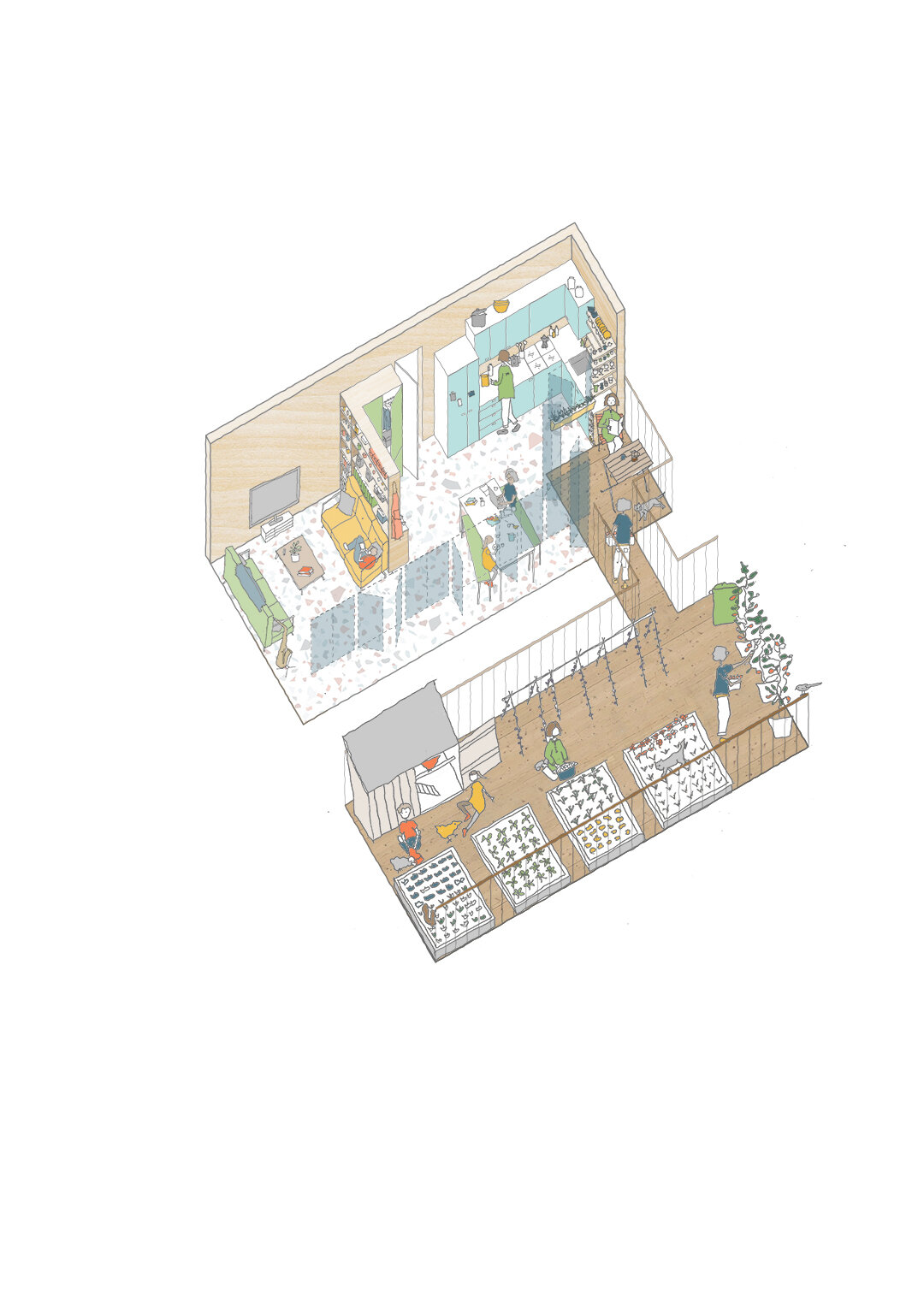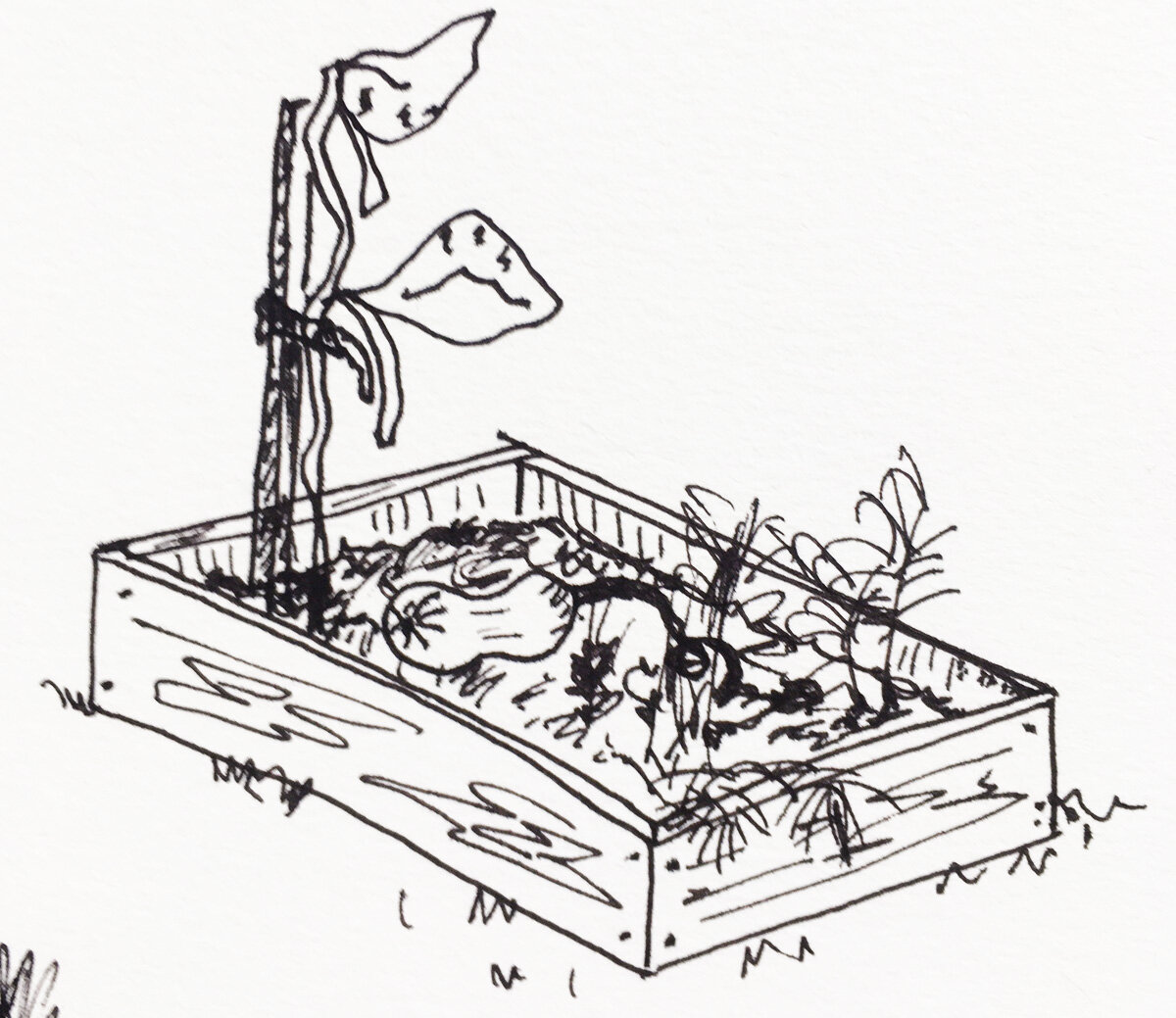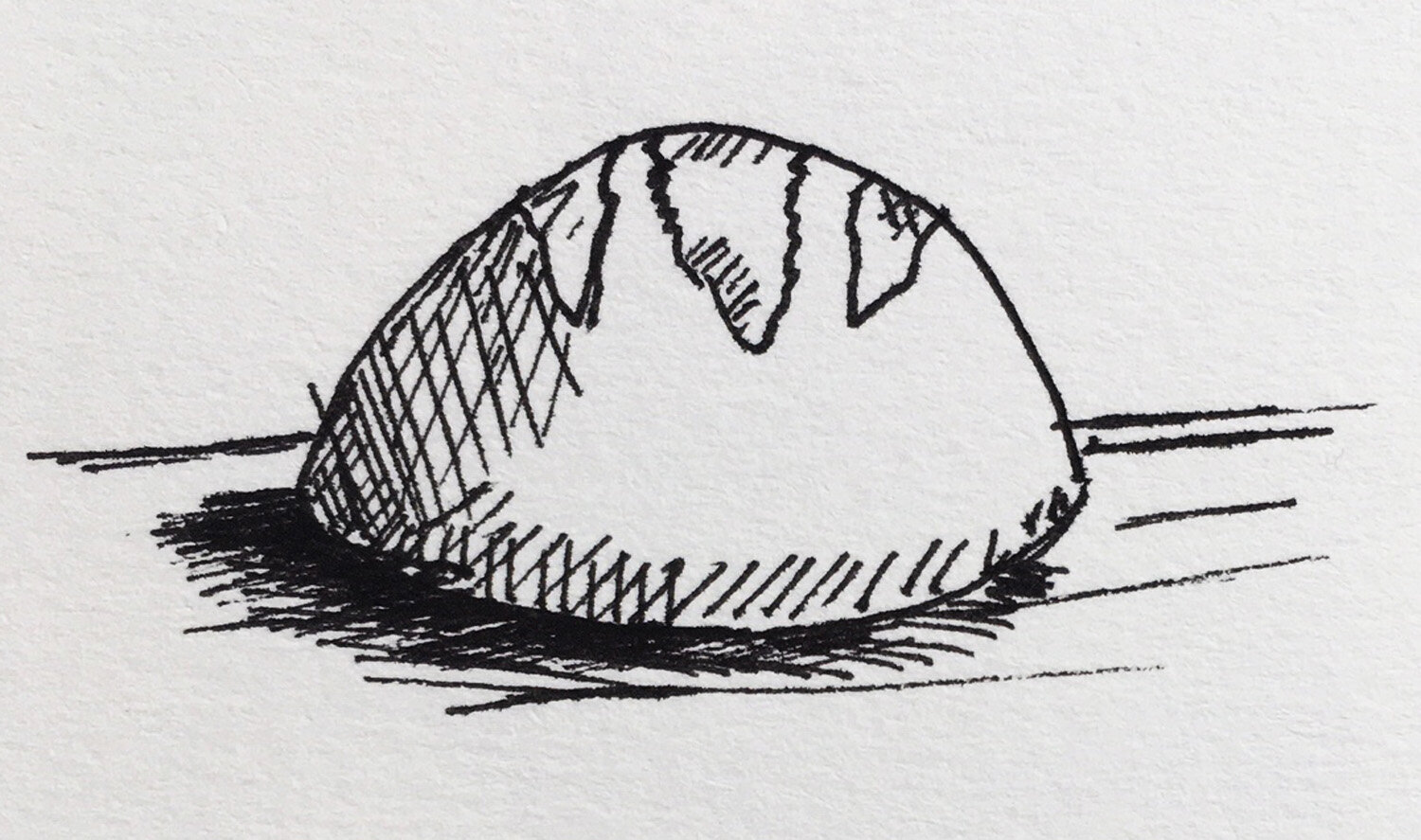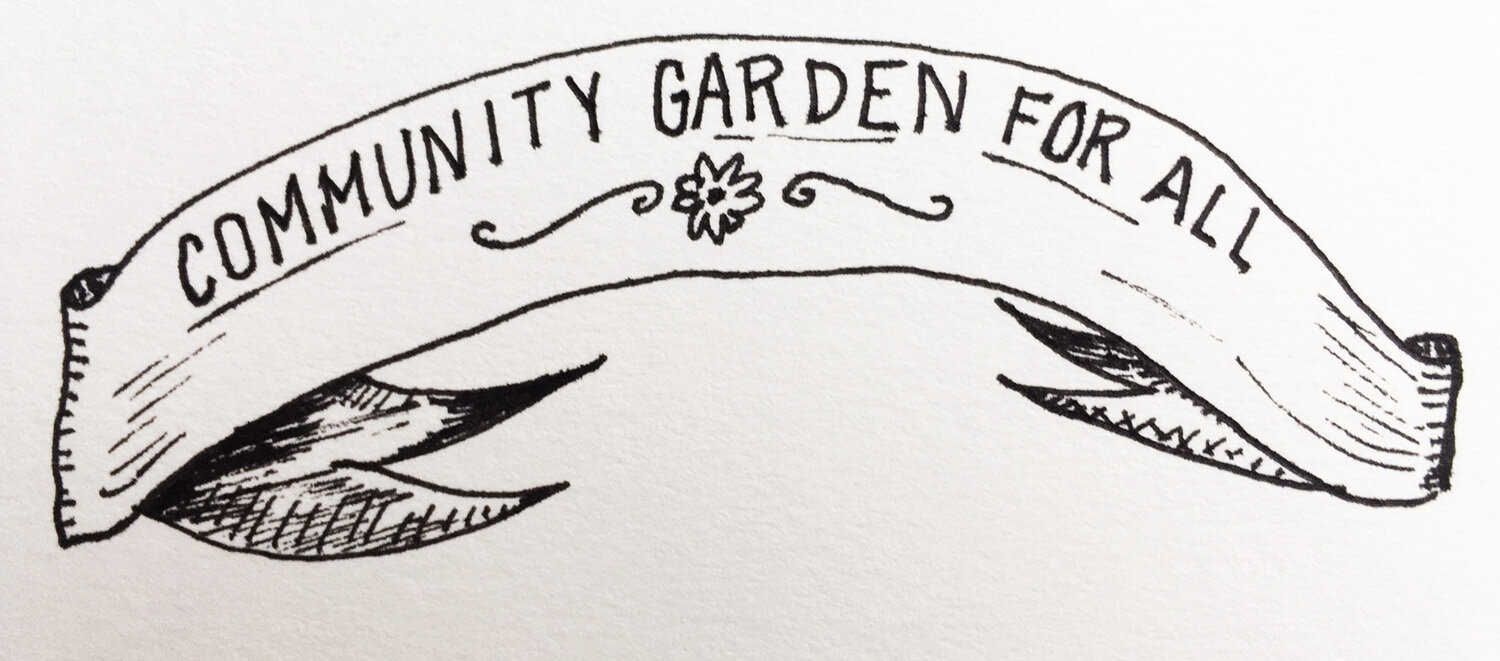Demands & Dreams for the Future: fixing our broken food system
In Issue 1 of Greater Govanhill, the Rumpus Room food working group explored the inherent inequalities in our food system and what can be done to fix them, with a bold new manifesto.
by the Rumpus Room food working group
illustrations by Giacinta Frisillo
Our food system is broken. It is vital we re-think that system and the civic role of food. The growing debates on food inequality and inaccessibility, as well as on the right of communities to control the way food is produced, traded and consumed, show how food is political.
Food can be an act of solidarity. It can be used to explore social relationships and the places where we live. The table becomes a way of telling stories. Performative meals can be used as tools for addressing social concerns and political dilemmas.
The Govanhill-based youth organisation Rumpus Room, worked with Camilla Crosta from Küche and Jess Routley from daikon* on the international project ‘Becoming a Food Citizen’. Young people from Govanhill and across Europe, aged 18-25 came together to ask how we could use food as a way to care for our community and imagine alternative food systems based on equality, fairness and justice.
Beth Cloughton is a member of the group:
“One of the reasons I think a food group like this is important is because it has core principles of community-ownership, possibility and transformation. Conversations and actions are cyclical and need to be led by local groups, not corporations, especially not conglomerates greenwashing themselves. It is also because it is a group of compassionate listeners and where you can challenge and question together. It is about collaboration not individualism.
“The issues of our food system are a way to access and challenge the global issues we face more broadly. Food underpins everything we do, it is literally fuel. But, it is also a way to learn about different problems through its lens. Inequality; sustainability and environmentalism; fair labour; exploitation; supply chains; colonialism; and more. Food is one way to access almost all the socio-political and economic problems we face.”
Thalia Groucott described how she joined the group as a way of learning more about problems and solutions in our food systems:
“I think that the problems in our food systems today are the result of many combined factors, including the supermarket hegemony in food access and the isolated manner in which we view food and eating, but I think that there are lots of creative ways in which we, as communities, can begin to tackle these.”
They have also been exploring practical solutions. Eleanor Moselle produced these drawings as part of an undergraduate degree in architecture.
Speaking about the project, she said: “I was designing a housing scheme that used food production as a means to create environmentally and socially sustainable communities. I became interested in the idea that architecture could be used as a tool to integrate food growing and horticulture into the daily lifestyles of the residents through having it be inherent to the structural and spatial design of the building, through strategies such as green walls, aquaponics systems and stacked allotments that are attached to the flats.
“Growing food seemed to be simultaneously beneficial in itself as it could provide the residents with fresh, seasonal and cheap produce, as well as being a helpful tool and an answer to many contemporary and long-standing issues in housing and general society; lack of outdoor space, air pollution, mental health, loneliness, climate change and food insecurity. This project explored the idea of a self-sufficient, mutually reliant community where growing food and living together exists in a symbiotic relationship."
As part of the workshops, the group has drafted the following manifesto on food solidarity.
A Food Manifesto - Demands & Dreams for the Future
No food poverty - sanctions on the governments that allow it
No food banks/pantries because we don’t need them
Free food for all
No industrial agriculture
No pesticides/herbicides
Community gardens for everyone
Public space is used for food growing
More food education
Everyone has access to their own plot of land
A cyclical food system
Housing built with sustainable food systems
Food growing integrated as a bathroom/kitchen
Waste re-thought
Better access to fresh food
Less water used
Community fridges and freezers
Food corporations 1) dont exist, 2) if they exist, there is no food monopoly and their profits are put into the local community
Illegal for food to be thrown away by supermarkets
Right to growing space
Cooking food for yourself everyday is difficult and lonely, can we cook for each other?
Everyone will be fed and healthy and happy
Public space is important for food, public space is yours, reclaim this space that is yours
People should be being a part of this process
Free school meals
Dignity around food
Food support for new families
Mutual food-giving and sharing
Community is extended family
A young persons’ food solidarity working group is now being established and the group are hosting small monthly outdoor meetups in the yard at Rumpus Room in Govanhill. If you are aged 16-25yrs living in the Govanhill area and interested in joining the food solidarity group then get in touch via rumpusroomteam@gmail.com


